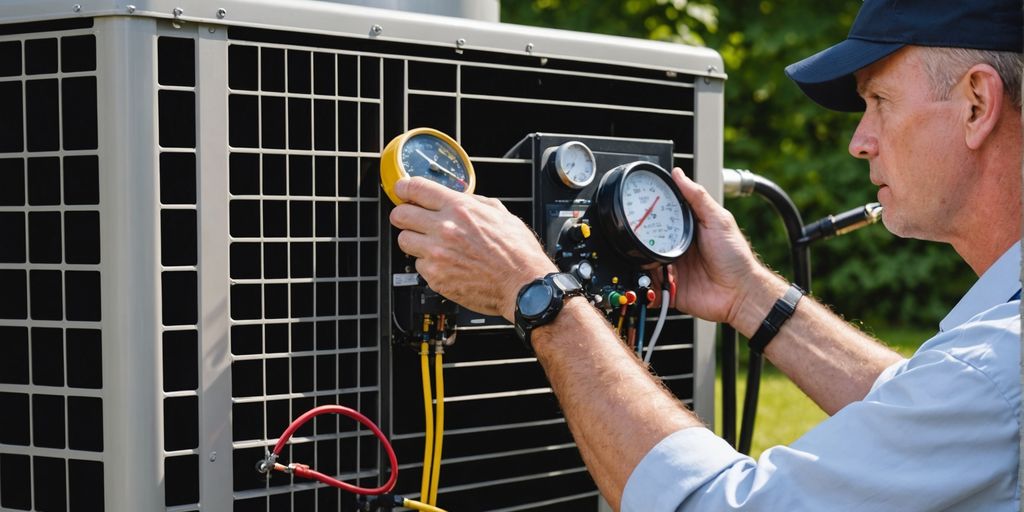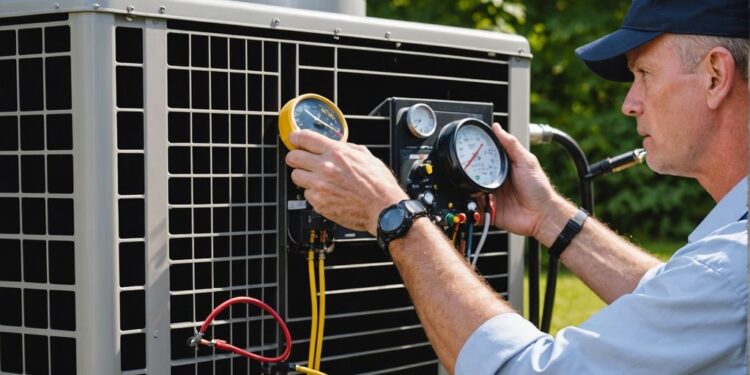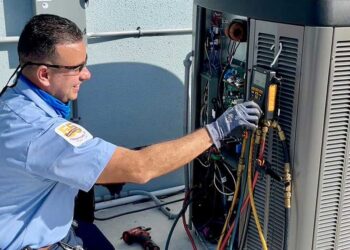Embark on a journey through the world of AC unit tune-ups, where we uncover the secrets to maximizing efficiency and prolonging the lifespan of your cooling system.
Learn how simple maintenance tasks can make a significant impact on your energy bills and overall comfort.

Importance of AC Unit Tune Up
Regular maintenance and tune-ups for your AC unit are essential to ensure its optimal performance and longevity. By scheduling tune-ups, you can benefit in various ways:
Improved Energy Efficiency
- Tune-ups involve cleaning and inspecting key components of the AC unit, such as filters and coils. This helps the unit operate more efficiently by allowing proper airflow and reducing strain on the system.
- Improved efficiency leads to lower energy consumption, resulting in reduced utility bills over time. A well-maintained AC unit will require less energy to cool your home, saving you money in the long run.
Extended Lifespan of AC Unit
- Regular tune-ups can help identify and address minor issues before they escalate into major problems. This proactive approach can prevent costly repairs or premature breakdowns, ultimately prolonging the lifespan of your AC unit.
- By ensuring that all components are functioning optimally, tune-ups can prevent unnecessary wear and tear on the system, allowing it to operate smoothly and efficiently for years to come.
Signs Your AC Unit Needs a Tune Up
Regular maintenance of your AC unit is crucial to ensure it runs efficiently and effectively. Here are some common signs that indicate your AC unit may need a tune-up.
Unusual Noises or Odors
If you start noticing strange noises like grinding, squealing, or banging coming from your AC unit, it could be a sign that there are internal components that need attention. Similarly, foul odors emanating from the unit can indicate issues that require professional maintenance.
Reduced Cooling Efficiency
One of the most obvious signs that your AC unit needs a tune-up is a noticeable decrease in cooling efficiency. If you find that your home is not cooling as quickly or effectively as it used to, there may be underlying issues within the system that need to be addressed promptly.
DIY AC Unit Maintenance Tips
Regular maintenance of your AC unit is essential to ensure optimal performance and longevity. Here are some DIY maintenance tips to keep your AC unit running smoothly:
Cleaning or Replacing Air Filters
Air filters play a crucial role in maintaining good air quality and efficient airflow in your AC unit. Follow these steps to clean or replace the air filters:
- Turn off the power to the AC unit before starting any maintenance.
- Locate the air filter panel on your AC unit.
- Remove the air filter carefully and inspect it for dust and debris buildup.
- If the filter is reusable, clean it with a vacuum or water. If it's disposable, replace it with a new one.
- Make sure to reinstall the filter securely before turning the power back on.
Checking and Cleaning Condenser Coils
Condenser coils are responsible for releasing heat absorbed from inside your home. Here's how to check and clean the AC unit's condenser coils:
- Shut off the power to the AC unit to ensure safety during maintenance.
- Locate the condenser unit, usually placed outside the house.
- Inspect the coils for dirt, debris, or any signs of damage.
- Use a soft brush or vacuum to gently clean the coils and remove any buildup.
- Be careful not to bend or damage the fins while cleaning.
Clearing Debris Around the Outdoor Unit
Debris like leaves, grass, or branches can obstruct airflow and reduce the efficiency of your AC unit. Follow these tips to clear debris around the outdoor unit:
- Regularly check the area around the outdoor unit and remove any debris or vegetation that may block airflow.
- Trim bushes and trees to ensure they are at least two feet away from the unit to prevent obstruction.
- Use a hose to gently wash away dirt or debris from the unit's exterior components.
- Keep the surrounding area clean and well-maintained to promote optimal performance.
Professional AC Unit Tune-Up Process
When it comes to a professional AC unit tune-up, technicians follow a series of tasks to ensure your system is running efficiently and effectively. Let's take a closer look at the typical process involved in a professional AC unit tune-up.
Assessment of Refrigerant Levels and System Components
During a tune-up, technicians will check the refrigerant levels in your AC unit to ensure they are at the correct levels for optimal performance. They will also inspect and clean various system components such as the evaporator coil, condenser coil, and filters to ensure they are free of dirt and debris that can impede airflow and reduce efficiency.
- Technicians will check and adjust refrigerant levels if necessary to ensure proper cooling.
- They will inspect and clean the evaporator coil and condenser coil to improve efficiency.
- Filters will be checked and replaced if needed to maintain good indoor air quality.
Importance of Checking Electrical Connections and Thermostat Calibration
Another crucial aspect of a professional AC unit tune-up is checking the electrical connections and calibrating the thermostat. Faulty electrical connections can lead to system malfunctions and reduced efficiency, while an improperly calibrated thermostat can result in inaccurate temperature readings and unnecessary energy consumption.
- Technicians will inspect and tighten electrical connections to prevent system failures.
- They will calibrate the thermostat to ensure accurate temperature control and energy savings.
- Any issues with electrical components will be addressed to prevent future problems.
End of Discussion
In conclusion, taking care of your AC unit through regular tune-ups is not just about comfort - it's about saving money and ensuring your system lasts for years to come.
Essential FAQs
When should I schedule an AC unit tune-up?
You should schedule a tune-up at least once a year, preferably before the start of the cooling season.
Can I clean the AC unit's condenser coils myself?
It's recommended to have a professional handle cleaning the condenser coils to avoid damage to the unit.
How often should I replace my air filters?
Air filters should be replaced every 1-3 months, depending on usage and the type of filter.
What are the benefits of checking electrical connections during a tune-up?
Checking electrical connections ensures safety and efficient operation of your AC unit, preventing potential hazards.
















